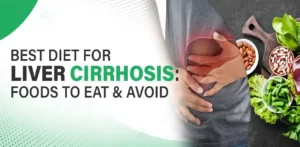Contents
- 1 Understanding Esophageal Cancer and Its Impact on Nutrition
- 2 The Esophageal Cancer Diet: Key Considerations
- 3 Foods for Esophageal Cancer Patients
- 4 Nutrition Tips During Esophageal Cancer Treatment
- 5 Esophageal Cancer-Friendly Meals and Recipes
- 6 Additional Considerations and Support
- 7 Conclusion: Nourishing Hope and Health Amidst Challenges
Facing a diagnosis of esophageal cancer can be a daunting journey, requiring not just medical interventions but also careful attention to nutrition. Diet plays a crucial role in managing the symptoms and side effects of esophageal cancer and its treatments. In this comprehensive guide, we delve into the essential dietary strategies, foods, recipes, and additional considerations tailored to support patients during their battle against esophageal cancer.
Understanding Esophageal Cancer and Its Impact on Nutrition
Esophageal cancer affects the esophagus, the muscular tube that connects the throat to the stomach. This disease can have a profound impact on a person’s ability to eat comfortably and digest food. As the cancer progresses, it may lead to difficulties in swallowing, known as dysphagia. Furthermore, treatments like chemotherapy, radiation therapy, and surgeries can exacerbate these challenges, affecting a patient’s nutritional intake and overall well-being.
The Esophageal Cancer Diet: Key Considerations
Crafting a diet plan for esophageal cancer patients involves addressing several key considerations to ensure adequate nutrition and support:
- Texture and Consistency: Soft, easily chewable foods are preferred to minimize swallowing difficulties. Pureed, mashed, or finely chopped foods are often easier to manage.
- Nutrient Density: Foods rich in essential nutrients such as protein, vitamins, and minerals are crucial for maintaining strength, supporting the immune system, and aiding in recovery.
- Hydration: Staying adequately hydrated is essential, especially if swallowing is difficult. Besides water, consider incorporating hydrating foods like soups, broths, and smoothies.
- Acid Reflux Management: Many esophageal cancer patients experience acid reflux, so it’s vital to choose foods that minimize this issue. Avoiding spicy, acidic, and overly fatty foods can help reduce discomfort.

Foods for Esophageal Cancer Patients
- Soft Proteins: Incorporate sources like lean meats (chicken, turkey), fish (salmon, tilapia), eggs (scrambled or soft-boiled), and tofu prepared in soft textures such as mashed or pureed.
- Cooked Vegetables: Steam or roast vegetables until they are soft and easy to chew. Opt for options like carrots, squash, sweet potatoes, and well-cooked greens.
- Fruits: Choose ripe fruits without skins or seeds, such as bananas, applesauce, pears, and pureed berries.
- Grains: Select soft grains like oatmeal, rice, quinoa, and well-cooked pasta or noodles. Avoid hard or crunchy varieties that may be challenging to swallow.
- Healthy Fats: Include sources like avocados, nut butters (peanut, almond), and olive oil for added calories, nutrients, and flavor.
- Dairy Alternatives: For those with lactose intolerance or dairy sensitivities, opt for lactose-free milk, yogurt, and cheese alternatives.
Nutrition Tips During Esophageal Cancer Treatment
- Small, Frequent Meals: Eating smaller portions more frequently throughout the day can be easier than consuming large meals, especially for those with swallowing difficulties.
- Chew Thoroughly: Take time to chew food thoroughly to aid in digestion and reduce the risk of choking or discomfort.
- Avoid Trigger Foods: Steer clear of spicy, acidic, and hard-to-digest foods that can worsen symptoms such as heartburn and acid reflux.
- Supplemental Nutrition: In cases where eating solid foods is challenging, nutritional supplements in liquid or powdered form may be recommended to ensure adequate nourishment.
- Stay Hydrated: Dehydration can exacerbate swallowing difficulties. Aim to drink plenty of fluids throughout the day, and consider consuming hydrating foods like fruits with high water content and clear broths.
Also Read: “Nutritional Guide for Laryngeal Cancer: Foods, Diet, and Tips”

Esophageal Cancer-Friendly Meals and Recipes
Here are some simple yet nourishing meal ideas and recipes suitable for esophageal cancer patients:
- Creamy Vegetable Soup: Blend soft-cooked vegetables such as carrots, potatoes, and zucchini with low-sodium broth for a comforting and easy-to-swallow soup.
- Mashed Sweet Potatoes with Soft Salmon: Mash steamed sweet potatoes and top with flaked, cooked salmon for a protein-rich and nutritious meal.
- Smoothie Bowl: Blend ripe bananas, Greek yogurt, spinach, and a splash of almond milk for a nutrient-packed and easy-to-consume breakfast option.
- Soft Chicken Curry: Simmer tender pieces of chicken in a mild curry sauce until soft and serve over soft-cooked rice or mashed cauliflower.
- Avocado and Egg Salad: Mash ripe avocado with chopped boiled eggs, a squeeze of lemon juice, and a sprinkle of herbs for a creamy and protein-packed salad.
Additional Considerations and Support
Beyond dietary considerations, esophageal cancer patients may benefit from additional support and resources:
- Nutritional Counseling: Working with a registered dietitian or nutritionist can provide personalized guidance and meal plans tailored to individual needs and preferences.
- Support Groups: Joining support groups or connecting with other patients can offer emotional support, tips, and insights from those who have experienced similar challenges.
- Mindful Eating Practices: Practicing mindfulness during meals, such as eating slowly, savoring flavors, and paying attention to hunger cues, can enhance the eating experience and aid digestion.
- Regular Follow-Ups: Schedule regular follow-ups with healthcare providers to monitor nutritional status, address any concerns or changes in eating patterns, and adjust the diet plan as needed.
Also Read: “Optimal Nutrition for Lung Cancer: Best Foods for Your Health”
Conclusion: Nourishing Hope and Health Amidst Challenges
Navigating esophageal cancer and its impact on nutrition requires a comprehensive approach that prioritizes nourishment, comfort, and overall well-being. By following tailored dietary strategies, incorporating nutrient-dense foods, exploring cancer-friendly recipes, and seeking additional support, patients can optimize their nutritional intake and enhance their resilience throughout their treatment journey.
Always consult with healthcare professionals, including oncologists, dietitians, and other specialists, for personalized recommendations based on individual health status, treatment plans, and dietary needs. With the right approach to nutrition and support, patients can find nourishment, hope, and strength as they navigate through esophageal cancer towards a healthier future.



